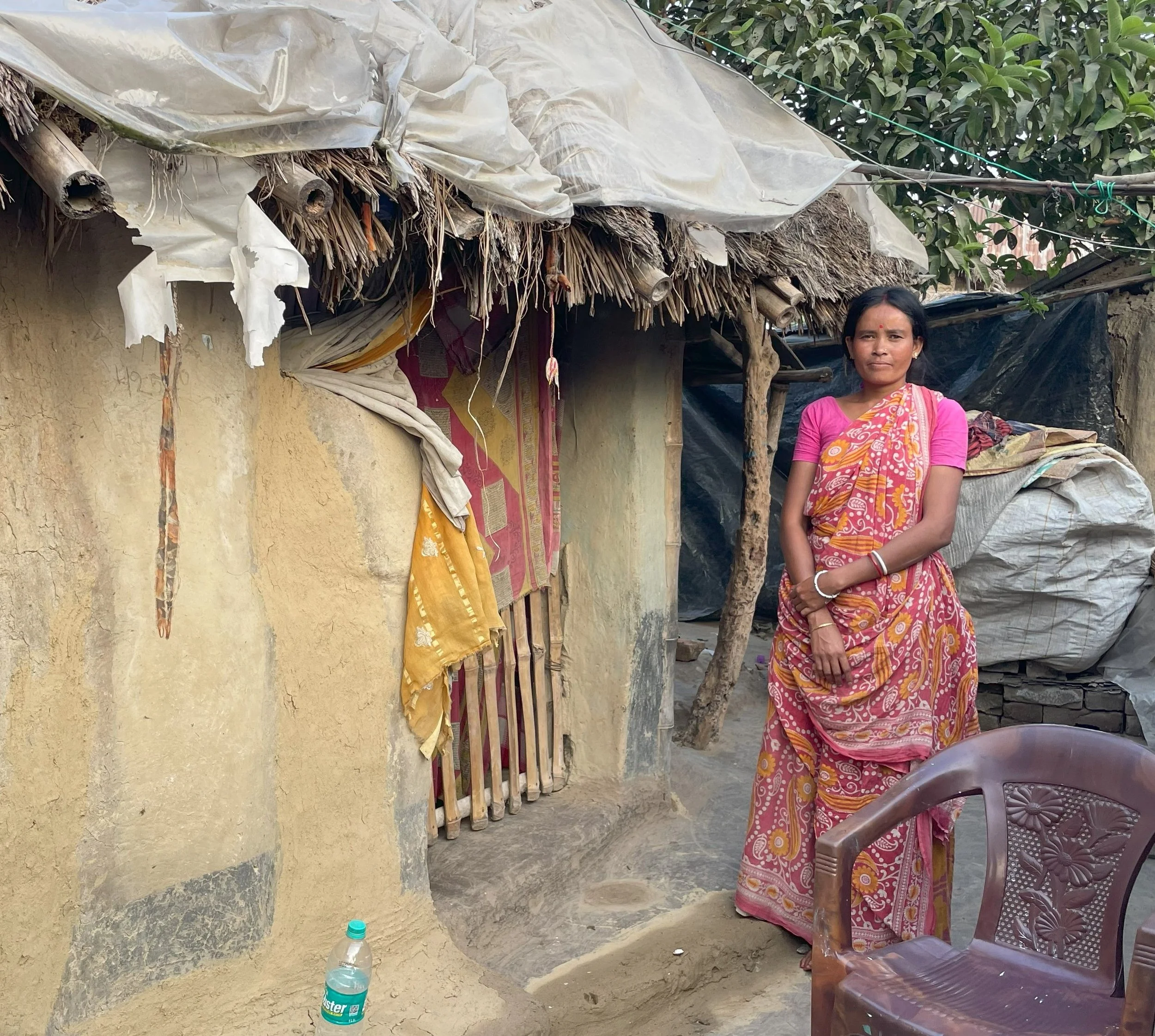WEST BENGAL, INDIA
Our young women are extremely at risk of being trafficked into the brothels of Kolkata. Our 16 girls are “tribal girls” from Murshidabad District, West Bengal State. They are impoverished country girls who are sadly very vulnerable to sexploitation and trafficking. As an example of this, read Maya’s story here. We have been told that their district is one of the two biggest source districts for trafficking in India. Of course, it would be preferable to keep the girls living within their family structure but unfortunately, because of stark employment prospects for rural girls/women and a prevailing culture of selling one’s child, sister, or wife into the sex industry, we feel that it is better for the girls to live within a safe house. At our home, we emphasise high school education so that they can discover future safe ways to support their families, and also for their own self-protection.
two case studies in poverty: pal and diya.
Pal (11) comes from a tiny mud-house located in a backward rural village located 200 kilometres from Kolkata. The family's annual income is NZD500. Pal has no father because of his death by suicide. Pal’s mum recounts, “When my husband was alive, we would cultivate rice on a field that we leased. Each year, we could keep one third of the harvest while two thirds went to the [city-based] landlord. But with my husband’s death, I can't cultivate anymore because in our rural area, it is like taboo for a woman to plough with oxen. So now I can only be hired to do day-to-day work. The wages are very low, and the work is only for about four months per year…now I have a medical problem with my appendix. And I see that my roof is leaking, and I have no money to repair it.” Pal’s education was so poor that when we met her, she was not able to read or write at all. When she came to us, she had to start her education all over again.
Diya (not her real name) comes from a remote village. Her parents depend entirely on rice cultivation, harvesting two crops per year. They must pay a land rental equivalent to two-thirds of their rice crop. While they do have enough rice to eat (valued at NZD1,950/year), if there are any other expenses, then they must sell their precious paddy. Diya’s mum informs us, “My husband sometimes sells the paddy, but he won’t give me the money. Instead, he wastes it on rice wine. I have to fight with him to get some money, but he is violent and beats me all the time. I cannot afford to look after my daughters or myself.” Our house father, reports, “In my observation, desperation from unemployment and no promise of any possible positive life-change within their rural life situations drives many young men to drinking alcohol. And for young girls it is no better. They drop their education, get married in their teens or move to the city and become even more vulnerable to abuse.”
Poor people in the villages are most helpless when it comes to matters around employment because many of them are either fully or semi-illiterate. Normally, they are unskilled and cannot fit into any type of job that may be available in nearby towns and cities. All they know is how to till the field by using 1000-year-old traditional tools – a pair of oxen.
The tragic part of this is that wealthy city people have bought most of the cultivable land plots surrounding the villages. They are the moneylenders too and use the local villagers as cheap labour, taking away their crops at harvest time. These landlords lend at interest rates as high as 40-50% p.a. Only in lenient cases will it be 30%. If the farmer’s crop fails, then forever he is enslaved as his debt increases from the exorbitant interest rate. The result of this is bonded-slavery, with many villagers silently bearing the pain of their debt that, in many cases, was inherited from their grandparents or even great-grandparents.
Farmers depend mostly on rain to water their crops. Irrigation is uncommon, so any change in rain patterns can lead to a crop being destroyed due to either a surplus or a scarcity of rain. Single crop failures mean that some of our girls have had to discontinue their education. It can also mean that there is the potential for others to be sent to the big city (Kolkata) as domestic workers, and into unsafe employment or unspecified work. This is where many poor young girls receive abuse and are kept in isolation from the outside community. Sex trafficking is rife. Many run away and end up on the street.




